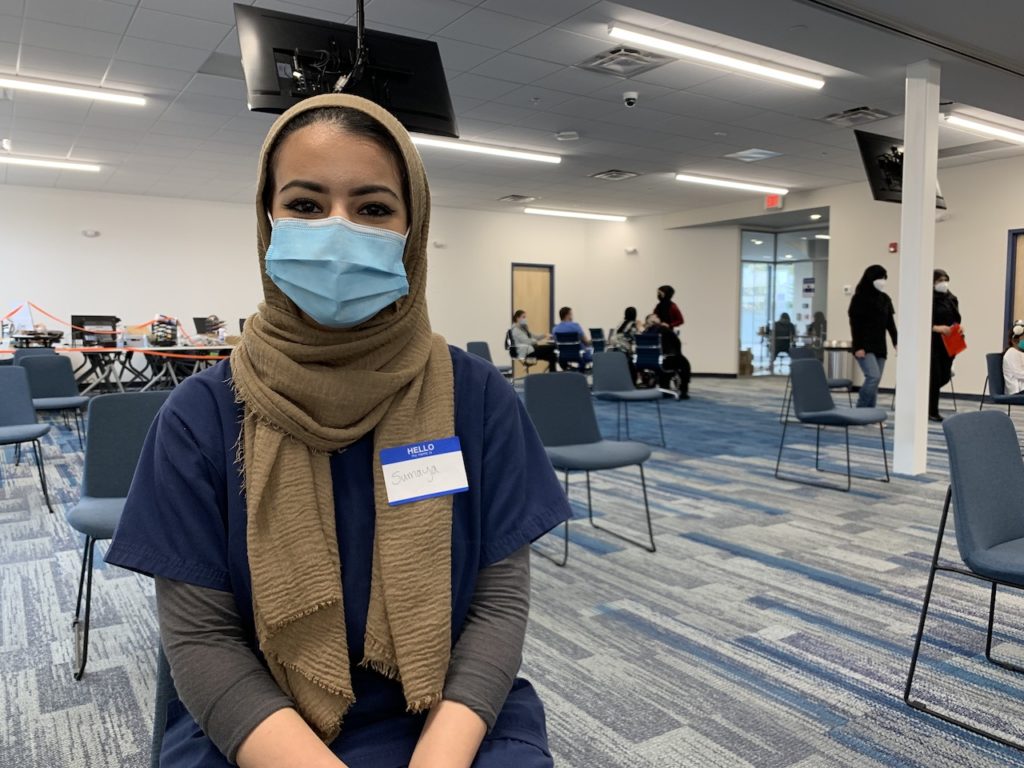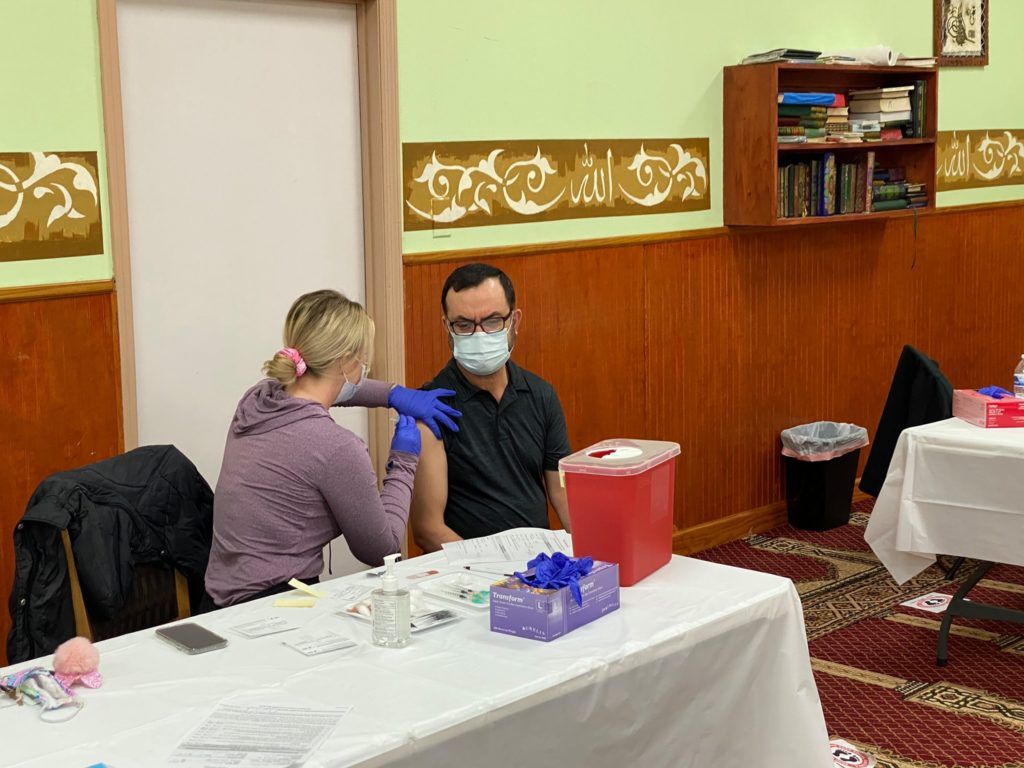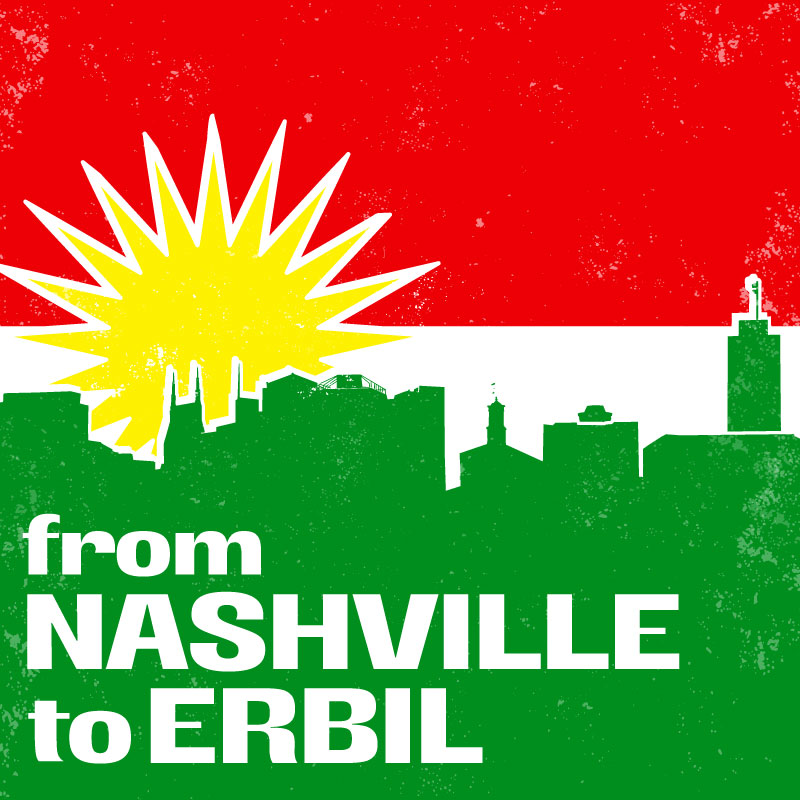
On a sloppy spring day in mid-March, hundreds of Kurdish Americans gathered in a field in Antioch under a sea of black umbrellas. Some of the men carried a stretcher to an open grave, with a yellow backhoe waiting.
In Muslim tradition, the body of Imad Doski was buried within 24 hours of his death — another casualty of COVID-19.
This was just six weeks ago. And it was a wakeup call to Nashville’s Kurdish community — the largest in the U.S.
Doski is one of the founders of the Salahadeen Center, which has served as the primary place of worship and Muslim teaching for Nashville-area Kurds.
“Like, it hit people. They saw it happen to one of them,” says Faiza Rashid, a nurse practitioner at the Amed Family Clinic, the largest Kurdish-run practice in town. “It hit home.”
Doski was in his mid-50s, relatively healthy.
That prominent death softened many Kurds to the idea of vaccination, Rashid says. After Doski was in critical condition, the Salahadeen Center even scheduled vaccination events with the city health department.
But even as people have started to come around, new questions are emerging. A top concern is about Ramadan, which runs through mid-May. Many Muslims are careful not to break their daily fast. The local imam weighed in, saying the vaccine does not count as sustenance.
 Courtesy Salahadeen Center via Facebook
Courtesy Salahadeen Center via FacebookWorkers with Metro Public Health provide vaccines at the Salahadeen Center in Nashville.
Nurse practitioner Redor Abdullah says he’s been telling even more conservative Muslims it’s not worth waiting a few more weeks.
“I would recommend you get it and make up your fast another day,” he says. “It’s better than getting the virus.”
The public health department has had to lean on health care workers like Abdullah to get these messages across because they don’t have Kurdish workers.
At the Salahadeen Center vaccination events, the people giving the shots are mostly white and English speaking. Sumaya Muhamed is a freshman at Belmont University who trained to give COVID shots since she works part-time at a pharmacy.
“About 70% of the people who go to Salahadeen are just Kurdish speaking, so they would all be at my table because nobody else knew how to help them,” she says.
It’s beyond practical questions about safety. Muhamed says they’re dealing with past trauma.
Most came to the U.S. as refugees after spending years in various refugee camps. And while there, vaccinations were not a choice. And they weren’t always safe. Muhamed says many developed infections.
So their questions about the safety of the vaccine, while easily answerable, are understandable.
“I don’t blame them,” she says. “I would be asking the same thing if I went through that too.”
Her own mother, Suad Abdulla, has been among those with too many questions to get her shot early on. Abdulla is now an English language instructor in Metro Schools, but she lived in refugee camps as a child and still has scars from vaccinations on both shoulders.
“As far as I know, the reason we have the scars is they were not switching syringes [between patients]. They were just putting it over the fire to sanitize it and use the same needle to inject us with the vaccinations,” she says.
The distrust is deep. And at this point, it’s not a question of whether COVID is a serious threat.
“That belief is there,” Abdulla says. “But as far as the vaccinations, that it will 100% protect me from this illness, that has not been proven to us.”
And yet, her daughter — the pre-med student and pharmacy technician — kept working on her, explaining how the vaccines work and how effective they’re proving to be.
It took a while to convince her.
“But eventually she gave in, thankfully,” Muhamed says.
Her mother said she would take the vaccine on one condition — that someone Kurdish give it to her. So her daughter saw the opening and, at a Salahadeen Center event, gave her mom the first dose before she could change her mind.


